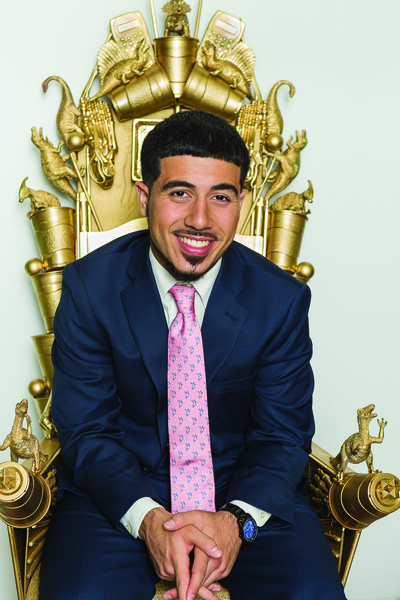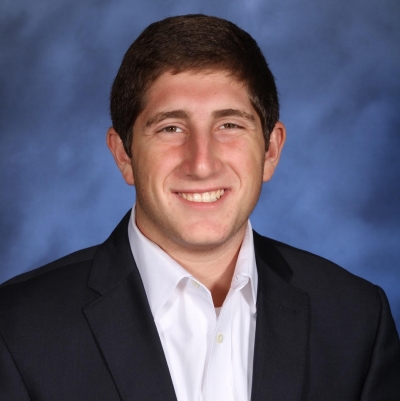
Work hard. Get good grades, Stay out of trouble. Do that, and you’ll go far.
That’s great advice…for the 1960s. Even then, this advice barely got you in the door. Like then, success really comes down to relationships – surrounding yourself with influencers who can introduce you to the right people and alert you to the right opportunities.
“If you have high aspirations, grades are not going to take you everywhere you want to go,” writes Julie Kessler, a 2018 Bowling Green grad who joined the Owens Corning, Supply Chain Leadership Program. “Business knowledge is critical, but its value can be increased exponentially when paired with superior communication and interpersonal skills.”
IDEAS ARE EASY. EXECUTION IS HARD
The same is true of ideas – the holy grail of the startup set. Wharton’s Kayvon Asemani, a hip-hop artist who landed work as a Facebook product manager after graduation, scoffs at ideas. He calls them “cheap.” That doesn’t mean he doesn’t appreciate them. As an artist, he understands the work involved in bringing an idea to life.
“Anyone can have a good idea, and that’s not very hard,” he explains. “At the end of the day, a good idea is just something that is built to address a market need. But the beauty isn’t in that idea; it’s in the way that the idea is executed.”
Kessler and Asemani are just two members of the Best & Brightest Undergraduate Business Majors who learned some surprising lessons as students. This year, P&Q asked the Best & Brightest graduates to share the most important lesson they learned about business as students. Turns out, these lessons were as immortal as they were immediate and integral.
“NO ONE OPERATES INDEPENDENTLY”
Some could fit on a bumper sticker. That’s the case with Zoe Yang, a violinist and accounting major from Case Western Reserve University. Her words of wisdom: Character is destiny. “After studying the fraud and scandals that caused so much chaos, I will always remember the consequences of ethical complacency. Building character also takes persistence and discipline just like building any habit.”
At the University of Florida, Abigail Fielding channeled her inner Napoleon Hill with this nugget: “It takes years to create a positive brand image and reputation and takes seconds to destroy it.” For Michigan State’s Colleena Peng, the most powerful leadership tools are also the easiest to wield. “A smile, a positive attitude, and humility can make you stand out in a crowded market,” she writes.
The market isn’t the only crowded space. At Brigham Young University, Braeden Santiago, who was hired by Cisco Systems to work in human resources after graduation, learned to think of a company as “big machine with a million moving parts.” Not just moving, says the University of Illinois’ Rachel Jacoby, but also interdependent. That’s what makes relationships – and teamwork – so important, she emphasizes.
“I learned that nothing and no one operates independently. Studying business has forced me out of my comfort zone, and has taught me that teams can bring out the best of each individual member. I know that asking for help is not a sign of weakness, but a sign of strength, because it takes a self-aware person to admit that they do not know the answer.”
INTENSIVE ANALYSIS CAN’T SAVE YOU FROM FAILURE
In reality, asking for help is the easy part – at least compared to teaming with peers who are less committed or hold sharply contrasting views. However, as Danny Sheridan notes, success is often predicated on getting disparate personalities aligned and moving enthusiastically towards a specific end.
“Lots of people are smart,” the University of Michigan grad concedes. “The difficult part is being smart and applying that to a project that has several contributors and stakeholders in different areas. Coordinating the individual contributors work is where I gained the most in college – not technical knowledge, but instead developing an EQ and understanding of cultural differences.”
Alas, team chemistry is elusive. It has certainly been the inspiration for countless case studies and psychological profiles. This elusiveness is true with business as a whole. There are best practices and models to reduce the odds of failure. As always, it comes with doubt, that bit of the unknown that has laid waste to innovations from MapQuest and Google Glass. This sense of the unknown appeals greatly to this year’s Best & Brightest.
“You can do all the analysis you want and still fail,” argues Daniel Abaraoha, a Cornell grad ticketed to Ernst & Young. “Even though I’m a guy that’s all about the financial statements, structure, and formulas, I’ve come to understand that there are some things that the economic theories can’t explain – and I’m oddly okay with that.”
“DON’T MAKE THE SAME MISTAKE TWICE”
That’s not to say the class didn’t identify forerunners to success and failure during classes. “There is no secret recipe to be successful,” observes Rutgers University’s Diana Cohn. “Success in business comes from good old team collaboration and social responsibility. In other words, maintaining a strong internal and external network. During my studies of successful and not-so successful companies, I have come to realize that even the most groundbreaking of ideas can become obsolete if its execution lacks vision for the short- and long-term.”
In other words, failure is inevitable, even if you’re Jeff Bezos, Elon Musk, or Jamie Dimon. How has the Class of 2018 learned to cope with failure? For the University of Michigan’s Kara Cendrowski, the answer is simple: Don’t make the same mistake twice. In contrast, Brittany Maupin views rebounding as more a matter of grit.
“In the real world, nothing is personal,” she asserts. “You need to learn to brush off rejection and keep moving. However, don’t let that change your character. You can be tough, competitive, and successful, but still be ethical and just nice and caring person simultaneously.”












